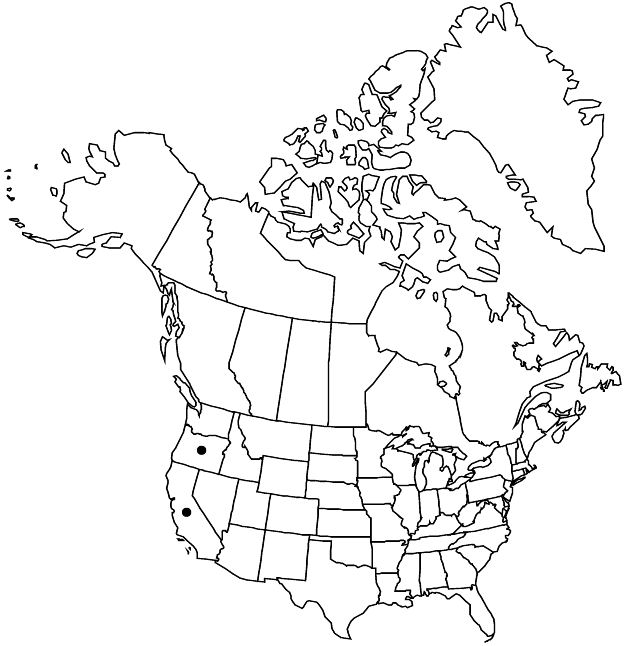Viola quercetorum
Leafl. W. Bot. 5: 101. 1948.
Plants perennial, caulescent, not stoloniferous, 4–25 (–34.5) cm. Stems 1–5, spreading to erect, leafy proximally and distally, usually elongated by end of season, puberulent to canescent, on caudex from subligneous rhizome. Leaves basal and cauline; basal: 1–6; stipules adnate to petiole, forming 2 linear, membranous wings, each wing with lanceolate to ± deltate projection, margins entire or laciniate, apex usually long-acuminate or divided into narrow, filiform processes; petiole 1.9–9.5 cm, puberulent; blade usually grayish green to whitish, sometimes ± purple-tinted abaxially, green to grayish green adaxially, ± ovate to ± orbiculate, deltate, pandurate, or broadly brownish purple abaxially, lower 3 dark brown-veined, lateral 2 sparsely to densely bearded, lowest 10–16 mm, spur yellow to reddish-brown, gibbous, 1–2 mm; style head bearded; cleistogamous flowers axillary. Capsules ovoid to ellipsoid, 8–12 mm, puberulent. Seeds medium brown, ± 2.7 mm. 2n = 24.
Phenology: Flowering Feb–Jul.
Habitat: Dry, grassy or brushy slopes, chaparral, in or lower than yellow pine forests
Elevation: 300–2000 m
Distribution

Calif., Oreg.
Discussion
Herbarium specimens of Viola quercetorum and V. purpurea var. purpurea can be difficult to distinguish; pressing obliterates the undulate leaf margins of V. quercetorum. In Oregon, most collections of V. quercetorum are from yellow pine forests (A. Liston, pers. comm.).
Viola quercetorum hybridizes with V. douglasii (J. Clausen 1964).
Selected References
None.
Lower Taxa
"thick" is not a number. "narrow" is not a number."elongated" is not a number.